Istanbul (Fener) Patriarch Bartholomew’s visit to Ukraine has already sparked tensions and reactions in the Orthodox world. As we will see, these tensions have more to do with geopolitics than religion.
As I mentioned in a previous article (Religion and Geopolitics: The Split in the Orthodox World: https://unitedworldint.com/15021-religion-and-geopolitics-the-split-in-the-orthodox-world/), this is a matter of conflict between the Istanbul (Fener) Patriarchate and Moscow Patriarchate. In this struggle for influence over the Orthodox population of the Eastern Europe, since the 1940s’, the US has been supporting the Patriarchate of Fener, while the Moscow Patriarchate has been supported by the Kremlin. Thus, this is also the religious dimension of the conflict of influence between Russia and the US in Eastern Europe and in the Eastern Mediterranean basin.
Bartholomew and Ukraine
Bartholomew paid a visit to Ukraine from August 20 until the 24. He visited upon the invitation of the Ukrainian President Volodymyr Zelensky. Last year, in late November, Zelensky invited Bartholomew to Ukraine for the 30 Year Anniversary of the country’s of Ukraine (on August 24, 1991 the Ukrainian Parliament had declared independence from the Soviet Union). Zelensky’s invitation caused an immediate reaction from the Moscow Patriarchate, which considers Ukraine part of its own territory. Today, Ukraine’s capital Kiev is full of demonstrations of the supporters of the Moscow Patriarchate, who oppose the visit of Bartholomew.
This is the third visit of Bartholomew to Ukraine as Patriarch (his first visit was in 1991 when he was a metropolitan bishop, not patriarch). As a patriarch, he visited Odessa in 1997, and Kiev in 2008. This is the first time he has visited Ukraine since his harsh conflict with the Moscow Patriarch over Ukraine broke out.
This year is the 30th anniversary not only of Ukraine’s independence, but also of the enthronement of Bartholomew: His term in the patriarch throne is one of the longest among the patriarchs. In addition, he is one of the few Fener patriarchs who have been interested in Ukraine.
Ukraine and Orthodoxy
A large part of Ukrainians are of the Orthodox faith, much like Russians. However, the Orthodox of Ukraine have been divided into a few groups. Most of the Orthodox parishes belong to the Moscow Patriarchate (Ukrainian Orthodox Church of Moscow Patriarchate). In addition, during the collapse period of the Soviet Union, some priests of Ukrainian nationalist tendencies established their church structures, but those churches had not been recognized by the Istanbul Patriarchate or by any other Orthodox churches in the world (The “Ukrainian Autocephalous Orthodox Church” and the “Kiev Patriarchate” members were mainly from the western and central regions of Ukraine, while most of the parishes of the UOC-MP are from the southern, eastern and partially central regions of Ukraine). Those churches merged in 2018 under the auspices of the Istanbul Patriarchate within a completely new structure: the Orthodox Church of Ukraine. In 2018, as a result of the initiative of the then Ukrainian President Petro Poroshenko and the support of the US, Bartholomew declared that Ukraine is within the canonical (religious) territory of the Istanbul Patriarchate; not of the Moscow Patriarchate, and he convened a council where under Istanbul Patriarchate, a new church would be formed, to which the clergy of the “Ukrainian Autocephalous Orthodox Church” and “Kiev Patriarchate” would attend. Nevertheless, since Ukraine is of particular importance both for Russia and for the Moscow Patriarchate, this move of the Istanbul Patriarchate led to termination of relations between the two churches. In this way the greatest split within the Orthodox world in history occurred.
Religion and politics
The conflict of the Orthodox communities within Ukraine is also related with the domestic politics of the country: The former nationalist church structures (and today’s Orthodox Church of Ukraine of the Fener Patriarchate) have always advocated pro-Western political course of Ukraine and have supported pro-Western politicians and political parties (and they have been supported by those pro-Western politicians). The Ukrainian Orthodox Church of Moscow Patriarchate, on the other hand, usually (but not always) has propagated pro-Russian political orientation of Ukraine and in the past, it had barely supported pro-Russian politicians (and it was protected by those politicians). Especially during the presidential election campaign in 2004, which resulted with the Orange Revolution of pro-Western powers, the demonstrations of the supporters of the pro-Western candidate Viktor Yuschenko were attended by the clergy of the “Ukrainian Autocephalous Orthodox Church” and the “Kiev Patriarchate”, while the demonstrations of the pro-Russian candidate Viktor Yanukovych were attended by the clergy of the Moscow Patriarchate.
The polarization of the Orthodox communities in Ukraine has also been in parallel with the territorial differences of Ukraine: Most of the parishes of the nationalist oriented churches (and of today’s Orthodox Church of Ukraine) are from the central and western regions of Ukraine, where pro-Western and nationalist and (especially in the westernmost part of Ukraine) anti-Russian sentiments prevail, while the members of the Ukrainian Orthodox Church of Moscow Patriarchate are mainly from the southern and eastern regions of Ukraine, where pro-Russian sentiments and political tendencies prevail.
As was mentioned before, the Fener Patriarch Bartholomew had visited Ukraine as patriarch in the past, twice: In 1997, he met in Odessa with the then Moscow Patriarch Alexei II . At that time, he had refused to meet with the representatives of Ukrainian nationalist clergy and although he wished to visit Kiev, he had to give up this plan, since the Moscow Patriarch did not wish his visit.
Bartholomew paid his second visit to Ukraine in 2008 and this time, despite the objection of the Moscow Patriarchate, he visited Kiev. This followed the Orange Revolution of 2004 and the President was the main figure of that revolution, the pro-Western Viktor Yuschenko. Bartholomew was in Kiev for his invitation. Yuschenko, who tried to pursue anti-Russian nation-building policies in Ukraine (the creation of Ukrainian national identity in contrast with Russian identity), he was very eager to be the founder of an autocephalous Ukrainian Orthodox Church. However, at that time, the Moscow Patriarchate had much more members in Ukraine and much greater support among the politicians and the Fener Patriarch at that time did not wish to break all ties with the Moscow Patriarchate. For those reasons, Bartholomew did not come into conflict with the Moscow Patriarchate and Yuschenko’s attempts did not bring about any results.
How the situation changed
However, by 2018, the situation had changed as a result of those aforementioned conditions and the then Ukrainian President Petro Poroshenko initiated creation of an autocephalous Ukrainian church. There were also domestic political reasons for this initiative: The presidential elections of 2019 were approaching and Poroshenko’s rating was still terrible. He opted to propagate the values of the western and central regions’s electorate, ie, nationalistic values. Within this framework, he wished to attend the elections as the founder of the independent Ukrainian church. Consequently, the two nationalist churches were dissolved and a church structure called the Orthodox Church of Ukraine was created under the auspices of Fener. Nonetheless, although this structure was independent in words, in fact, it was not a real autocephalous church, but a church structure which was completely subject to Fener.
Nonetheless, the results were tragic both for Poroshenko and for the Fener Patriarchate: This church project did not help Poroshenko to win the elections. The Presidential elections of 2019 were won by his rival, Volodymyr Zelenskiy and Zelensky did not show any interest in the church question. In addition, most of the Orthodox parishes in Ukraine remained loyal to the Moscow Patriarchate. So, the Moscow Patriarchate, despite all of those conditions, is still the strongest church in Ukraine. Moreover, despite the expectations of the supporters of Fener, only 4 of the 15 autocephalous Orthodox churches have recognized the “Orthodox Church of Ukraine” of Fener (one of the 4 churches is the Fener itself). All others still recognize Ukraine as the canonical territory of the Moscow Patriarchate.
The US and Fener
After the presidential elections of 2019, this “Orthodox Church of Ukraine ” was perceived by the new government as a project of the former president: so that church was deprived of the keen state support. However, the then US State Minister Mike Pompeo spent efforts to restore the relations of that church with the new president of Ukraine: When he visited Kyiv, he visited the head of that Church Metropolitan Bishop Epiphany, and only after that he visited President Zelensky and he told Zelensky to have good relations with that church. The US was very active in that process. After that church was established at the end of 2018, it was the State Secretary Mike Pompeo who congratulated them first. The three other churches, who recognized Fener’s decision (the Greek Orthodox Church, Cyprus Church, the Patriarchate of Alexandria), took such decisions after Mike Pompeo or other high level US officials visited them. In November 2020, Pompeo visited Turkey and the only person he met was Patriarch Bartholomew (Pompeo did not meet with any Turkish officials during that visit). After the US presidential elections were won by Joe Biden (who would declare the “return of the USA”), one of the first people who congratulated him was Patriarch Bartholomew. Biden is also known for his support to Fener in its struggle in the Orthodox world. The supporters of Fener expect that after that visit, some other Orthodox churches (such as Bulgarian, Georgian Orthodox churches) may also recognize Fener’s dominance in Ukraine. However, Biden’s indecisive policies have already caused disappointment among pro-Western circles in Eastern Europe. For this reason, it is not clear whether Biden during his term will render a real support to this church or not. Without a clear support of the US, Fener will hardly be able to realize its plans concerning the Orthodox world.







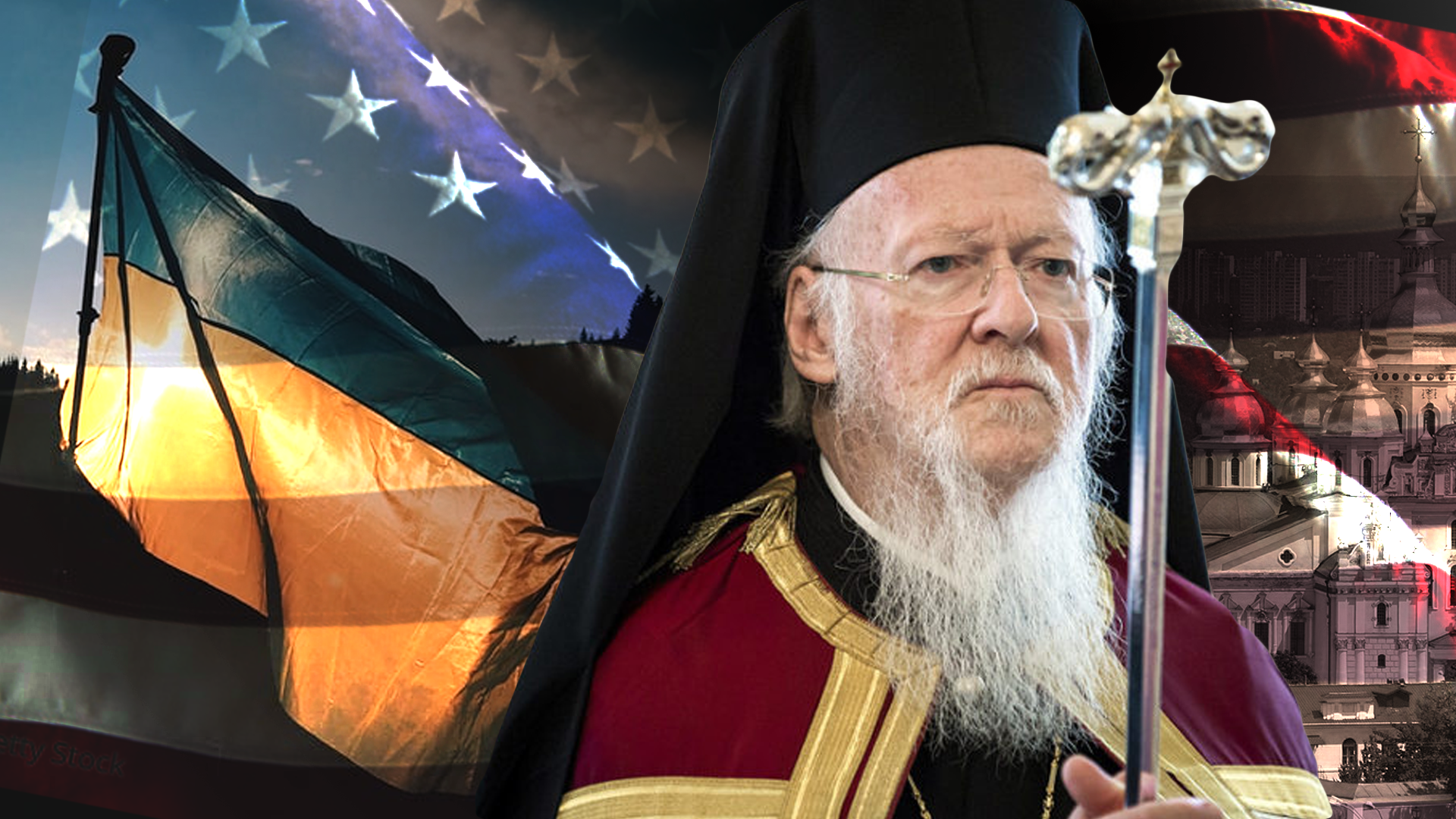

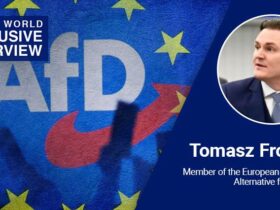

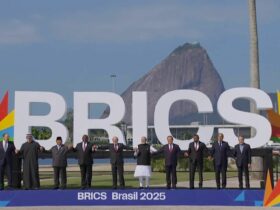
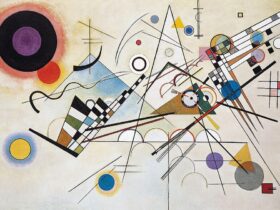

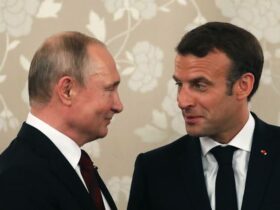


Leave a Reply